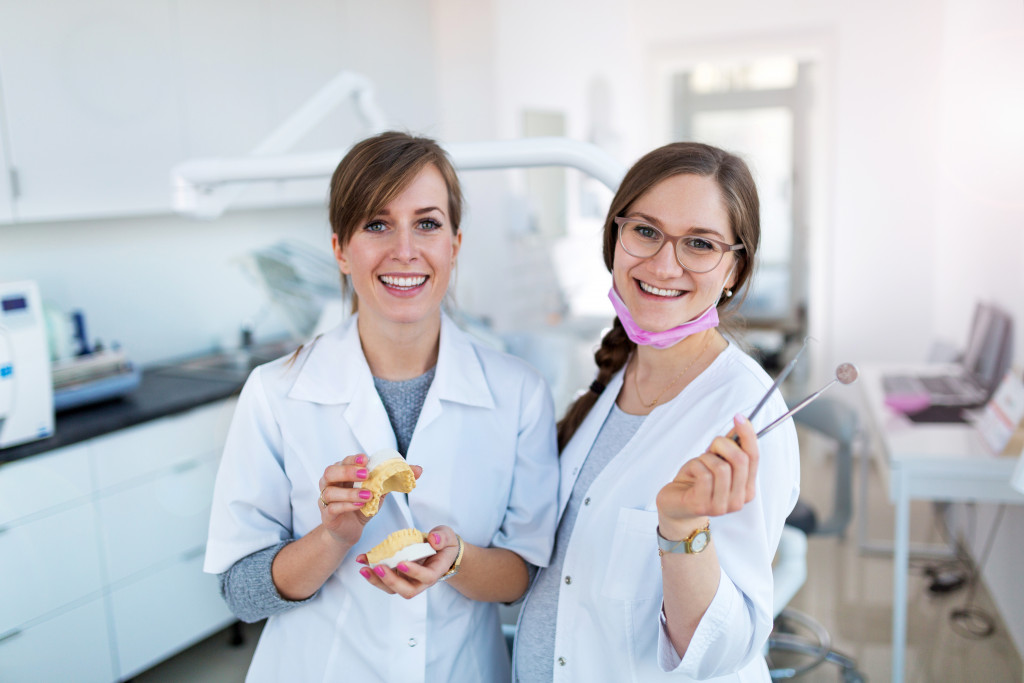It’s no secret that maintaining good dental health is important — after all, your smile is one of the first things people see when they meet you. But despite this, many people still hold onto false beliefs about dental health, which can lead to poor oral hygiene habits. This article will dispel some of the most common dental health myths and provide accurate information to help you maintain a healthy smile for life!
1. Myth: Sugar Is the Main Cause of Cavities
This is one of the most common dental health myths out there, but it is simply not true. While sugar does contribute to cavities, it is not the only factor. Other factors that can lead to cavities include poor oral hygiene, not enough saliva in the mouth, and acidic drinks.
Also, some people are simply more prone to cavities than others. So, if you’re worried about cavities, be sure to brush and floss regularly and try to limit sugary snacks and drinks.
2. Myth: Whitening Toothpaste Actually Makes Your Teeth Whiter
Whitening toothpaste may seem like an easy way to get brighter teeth, but they actually don’t do much. Whitening toothpaste can slightly remove surface stains, but it won’t actually change the color of your teeth.
If you want to achieve brighter teeth, you’ll need to consult a dentist for professional teeth whitening treatments. You can also try using at-home teeth whitening kits, but be sure to follow the instructions carefully to avoid damaging your teeth.
3. Myth: You Don’t Need to Floss If You Brush Regularly
This is another common dental health myth that can actually lead to more cavities and gum disease. While brushing does remove some plaque and bacteria, it cannot reach all the nooks and crannies in your teeth. That’s why flossing is so important — it helps remove plaque and bacteria from areas that your toothbrush can’t reach.
So, be sure to add flossing to your oral hygiene routine if you want to keep your teeth and gums healthy.
4. Myth: Mouthwash Is Enough to Keep Your Mouth Clean
Mouthwash can help freshen your breath and remove some bacteria, but it’s not enough to keep your mouth clean. Mouthwash cannot replace brushing and flossing, so be sure to include all three in your oral hygiene routine.
You can also try using a tongue scraper to remove bacteria from your tongue. This can help freshen your breath and improve your overall oral health.
5. Myth: Baby Teeth Don’t Matter Because They Fall Out Anyway
Many people believe that baby teeth don’t matter because they eventually fall out. However, this is not true! Baby teeth are important for several reasons.
First, they help your child learn to speak and chew properly. They also hold space for adult teeth, so if a baby tooth is lost too early, it can cause problems for the adult tooth. Finally, baby teeth act as placeholders for permanent teeth, so it’s important to take care of them.

6. Myth: You Only Need to Visit the Dentist If You Have a Problem
This is one of the worst dental health myths out there because it can lead to serious problems down the road. It’s important to visit the dentist even if you don’t have any problems because they can catch issues early on and help prevent them from getting worse.
Therefore, be sure to visit the dentist for a check-up and cleaning at least twice a year. If you have any concerns, don’t hesitate to bring them up during your appointment.
7. Myth: It’s Normal for Gums to Bleed When You Floss
Gums may bleed when you floss, but this is usually a sign of gum disease. Gum disease is an infection of the gums that can lead to tooth loss if left untreated.
If your gums are bleeding when you floss, be sure to see a dentist, so they can diagnose and treat the problem. In the meantime, continue to floss and brush regularly, and try to avoid sugary snacks and drinks.
8. Myth: Dental X-Rays Are Dangerous
Dental x-rays are not dangerous and are actually very important for oral health. Dental x-rays can help dentists detect problems early on before they become serious.
A small amount of radiation is involved with dental x-rays, but it’s not enough to cause any harm. In fact, you’re exposed to more radiation from everyday activities like eating food and drinking water. So, don’t be afraid to get dental x-rays when your dentist recommends them.
It’s important to understand dental health myths to maintain a healthy smile for life. By dispelling some of the most common myths, we hope to help you better understand how to care for your teeth and gums. Be sure to visit the dentist regularly for check-ups and cleanings, and follow their advice on oral hygiene to keep your smile looking its best!

